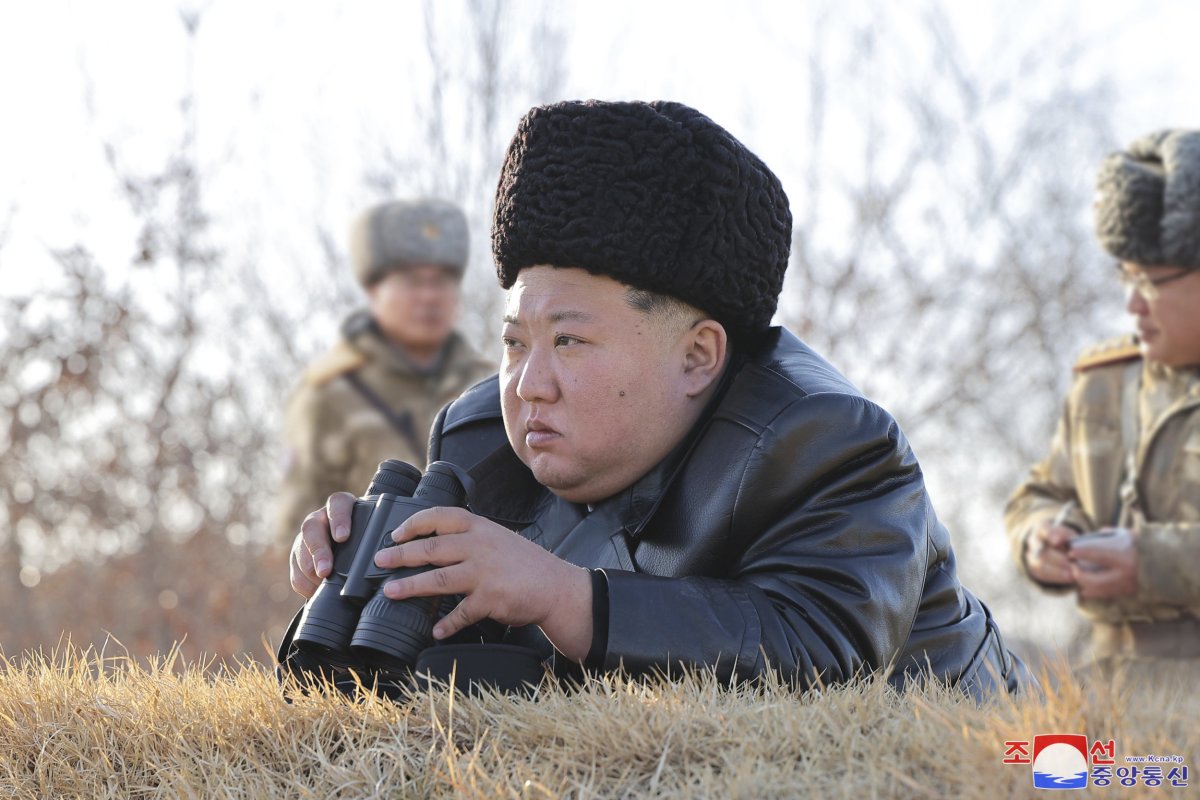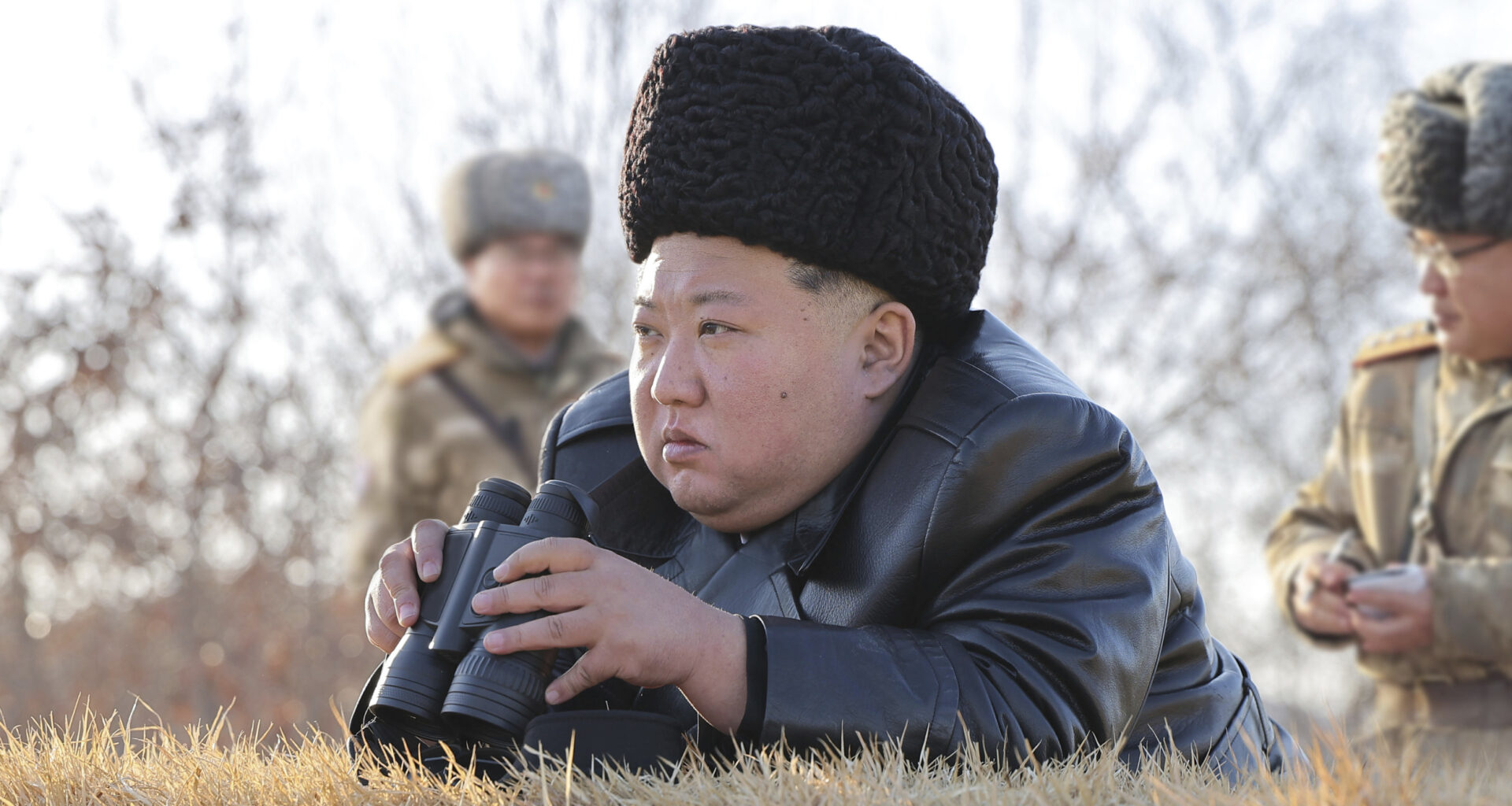The Group of Seven [G7]’s demand that North Korea shut down its nuclear weapons program has sparked a fiery response from Pyongyang, which accused the U.S. and its allies of flirting with nuclear conflict.
Newsweek reached out to the North Korean embassy in China and the U.S. State Department with emailed requests for comment outside of office hours.
Why It Matters
U.S. “provocations” are frequently cited by the Kim Jong Un regime as justification for advancing its United Nations-sanctioned nuclear weapons. North Korea’s nuclear stockpile, which numbers around 50 warheads, according to the Federation of American Scientists, is major source of tension with South, which hosts over 28,000 U.S. troops and benefits from the U.S. “nuclear umbrella.”
The G7 nations collectively represent approximately 30 percent of the world’s gross domestic product. Three of its members, the United States, France, and the United Kingdom are nuclear-armed states.
What To Know
U.S. Secretary of State Marco Rubio joined fellow G7 foreign ministers last week in Quebec’s Charlevoix region. While ending Russia’s war-dominated discussions, Indo-Pacific tensions, particularly between China and its neighbors, were also a key focus of the joint statement to emerge from the summit.
The G7 also named North Korea, urging it to “abandon all nuclear weapons, weapons of mass destruction, and ballistic missile programs” in line with United Nations Security Council resolutions.
In a statement carried by state media Monday, North Korea’s Foreign Ministry accused the G7 of hypocrisy. “[ …] The chief criminals wrecking global peace, security, and the international nuclear nonproliferation system are condemning the just war deterrence of a sovereign state—like a guilty party filing a lawsuit first.”

File photo: North Korean leader Kim Jong Un oversees the test firing of what state media said were strategic cruise missiles off the country’s west coast on February 26.
File photo: North Korean leader Kim Jong Un oversees the test firing of what state media said were strategic cruise missiles off the country’s west coast on February 26.
Korean Central News Agency
The ministry pointed out that the U.S. remains the only country to have used a nuclear weapon in war and said Washington has been “bringing the crisis of nuclear conflict to the Korean Peninsula” through its continued “nuclear war drills” with the South.
The statement also criticized the U.K. for its role, alongside the U.S., in developing nuclear-powered submarines for Australia and alleged that London was “openly attempting to reintroduce U.S. nukes” onto its soil.
This was an apparent reference to reports last year that cited Pentagon procurement contracts and satellite imagery suggesting the U.S. may be preparing to house nuclear weapons in Britain for the first time in almost two decades.
The ministry also condemned French President Emmanuel Macron‘s proposal to extend France’s “nuclear umbrella” over its European partners as a step toward greater European self-sufficiency.
G7 nations “are hell-bent on illegal and malicious nuclear proliferation act under the pretext of “nuclear sharing” and “offer of extended deterrence,” the statement read.
The G7 statement also emphasized the need to counter North Korean state-linked hackers, whose theft of cryptocurrency totals around $1.2 billion, according to South Korea’s spy agency. It also condemned North Korean and Iranian military assistance to Russia.
What People Are Saying
Taehyun Kim, professor in Korea National Defense University’s Department of Strategic Studies, wrote in a 38 North article published Thursday: “To counter North Korea’s efforts to establish itself as a de facto nuclear weapon state, the U.S. and South Korea must prioritize deterrence and strategic stability.
“North Korea’s nuclear and missile advancements, coupled with deepening military ties with Russia, necessitate a robust deterrence posture that emphasizes credible and integrated extended deterrence. Additionally, the U.S., South Korea and Japan should coordinate diplomatic efforts to prevent formal recognition of North Korea’s nuclear status by Russia and China.”
What Happens Next
U.S. President Trump, who joined Kim for face-to-face talks three times during his first term, has suggested he would meet with the North Korean leader again.
“I have a great relationship with Kim Jong Un, and we’ll see what happens, but certainly he’s a nuclear power,” Trump told reporters Thursday.
